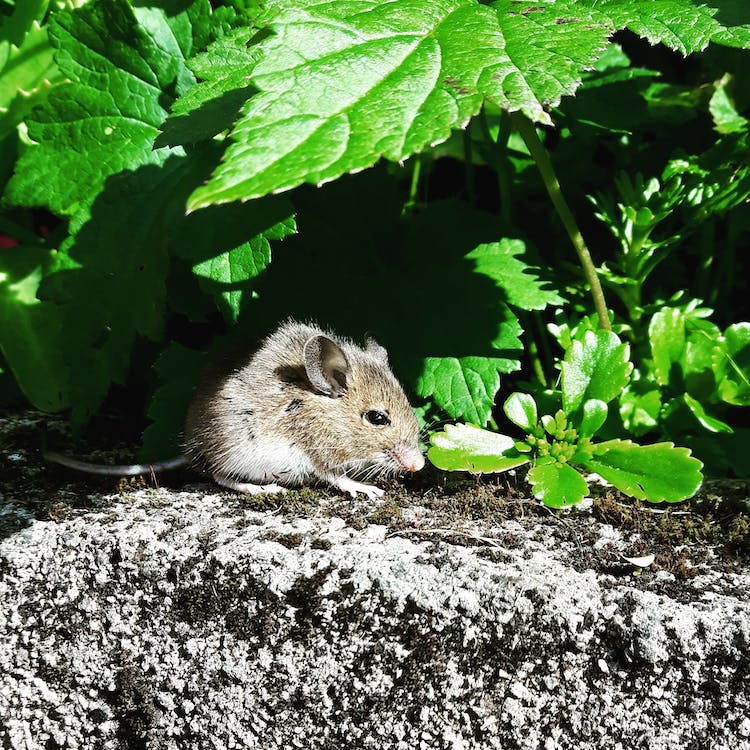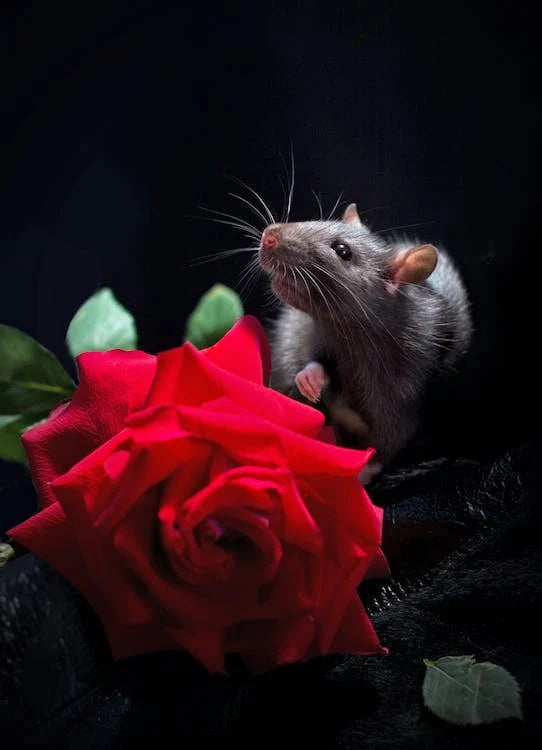
If we’re gardening right, our gardens are part of the ecosystem and full integrated into the wild, natural world around us. This is a wonderful thing—gardening can support birds, bees, and other wildlife while still making our spaces beautiful and productive. Even a small patio garden can provide support for pollinators of all sorts from bees to hummingbirds. Our fruit trees and vegetable gardens tie us directly to nature by letting us take a hand in producing the foods we eat. However, as we work to feed ourselves and the local wildlife, we may inadvertently attract some creatures we’d rather not have near our gardens and homes. In particular, rats and mice are common unwanted garden visitors that can cause serious problems for our health and homes if they go unchecked. So, how do you go about keeping rats and mice out of the garden? What are the best solutions for rats and mice near our homes and gardens? Are their natural or eco-friendly rat and mice repellents? It might not be a fun topic, but it’s an important one. Let’s dig in.
Let’s start with an important distinction: rats and mice may look similar, but they are very different animals. While there are several varietals of each, rats and mice are different species with different habits. Rats are larger—so much so that a good rule of thumb is when in doubt, you saw a mouse—with coarser fur and proportionally larger heads and feet. They prefer to eat meat and grains, and will eat smaller animals including mice. Mice are smaller, finer-furred, with a more petite build. They eat a wide variety of things, and have a musky smell. There’s a big different in temperament between mice and rats that should be noted. The stereotypes are true: mice are curious, and will investigate new things in their habitat. Rats are more cautious—one exterminator we talked to described them as ‘neophobic’--and will avoid new structures or items in their space until they get used to them. This affects how we deal with them as pests, so please bear it in mind.
While both are problematic vermin, rats are especially dangerous as they can be more aggressive than mice and they are more likely to carry diseases. Per the US Center for Disease Control, rats may carry or transmit a long list of illnesses and infections that can be transmitted to humans, including the following:
- Hantavirus
- Hantavirus Pulmonary Syndrome
- Hemorrhagic Fever with Renal Syndrome
- Lassa Fever
- Leptospirosis
- Lujo Hemorrhagic Fever
- Lymphocytic Choriomeningitis (LCM)
- Monkeypox
- Omsk Hemorrhagic Fever
- Rat-Bite Fever
- Salmonellosis
This is only a partial list, but it gives us some idea of the disease risk that rats pose to humans. In addition, while rats may carry these diseases they may not get sick themselves so it’s impossible to tell if a rat has a disease just by looking at it.

Keeping rats and mice away from our homes and gardens starts with prevention. There are a number of steps we can take to discourage rats and mice from taking up residence around us, including the following:
- Prune back shrubs, trees, bushes, and other landscaping away from buildings. Both rats and mice like to run along the base of structures, so by keeping landscaping pruned, grass trimmed, and leaving a good 2-3 feet/60-90cm of space between them and buildings can discourage rats and mice. Covering that opens space with well-packed gravel can both enhance your landscaping and help keep vermin away from your home.
- Reduce or eliminate rat and mice habitat near your home by clearing away clutter, trash, or yard waste. If you have a wood pile for firewood, keep it well away from your home or shed.
- Keep all outdoor animal food in tightly sealed, rodent-proof bins. We like to use metal trash cans with tight-fitting lids for birdseed, chicken feed, and other outdoor animal food. Just to be safe, keep it away from buildings.
- While we love compositing, it’s best to keep your compost heap a bit away from your home. A well-turned compost heap isn’t likely to attract rats and mice, but good maintenance and a good location helps make sure this doesn’t become a problem. Cover your compost bin where possible with a tight-fitting lid or a rodent-resistant mesh or net.
- Likewise, keep your trash cans or garbage bins as far from your house as possible, and make sure to put them out for pickup regularly.
- If you have a bird feeder, bring it inside or store itin a rodent-proof container with your birdseed at night when rats and mice are most active.
- Finally, keep your home well-sealed. Rats and mice can squeeze through surprisingly small spaces, so make sure that gaps in your crawl space, attic, and around doors and windows are sealed tight.
These are good basic steps that we should all take to help eliminate rats and mice from our homes and gardens. While these steps do not guarantee that you’ll never have a rodent problem, they do a lot to help and will discourage rats and mice from moving in.

So, what do you do if you have a rat or mouse problem in your home and garden. Calling an exterminator or putting out rat and mice traps with lethal baits is one possibility. This will certainly decrease if not eliminate your rodent problem—however, some gardeners prefer a more natural approach. The good news is that you have some options. In addition to the steps above, there are some non-poison based steps you can take to eliminate a rodent infestation:
- Some plants actively repel mice and rats due to their strong smells that these rodents try to avoid. Onions and garlic are good options, as are pennyroyal, artemisias, crown imperial, and peppermint. By planting these throughout your vegetable garden—careful to keep the non-edibles distinct from your veggie plants—and around the perimeter of your home, you can help keep rodents away. We like planting peppermint near the house due to its lovely smell and useful nature.
- An old fashioned solution for rodents, outdoor cats can help a great deal. Many cats love to hunt rodents, and even the scent of a cat in and around your house can scare rats and mice away. If you live in an area with feral or stray cats, putting out some food to attract them to your yard might be an option and who knows—you might end up adopting a new furry friend.
- There are some natural sprays that can repel rats and mice. You can buy them at many garden stores or home improvement places, or make your own. They’re generally based on either ammonia or peppermint essential oils and when sprayed around the house regularly they can help keep pests away. A simple 50/50 mix of white vinegar and ammonia or a few teaspoons of peppermint oil in a cup of rubbing alcohol is a good DIY start. Spray around the perimeter of your home, around your trash cans and compost heaps, or anywhere else rodents may gather.
You may see ultrasonic devices intended to repel rodents. They plug into a wall socket and emit a high-pitched noise that humans can’t hear but irritates rats and mice. The issue with these is that they also irritate other animals that you may want in your garden, like birds, your pets, the neighbors’ pets, and the like. Thus, we really don’t recommend them for outdoor use, so please try something else first.
Rats and mice in the garden aren’t a pleasant topic, but it’s a problem that many gardeners deal with from time to time. We hope this helps you address the issue and find the right solutions for you. If you have an idea or technique we missed, please let us know. We love to hear from you!

Leave a comment